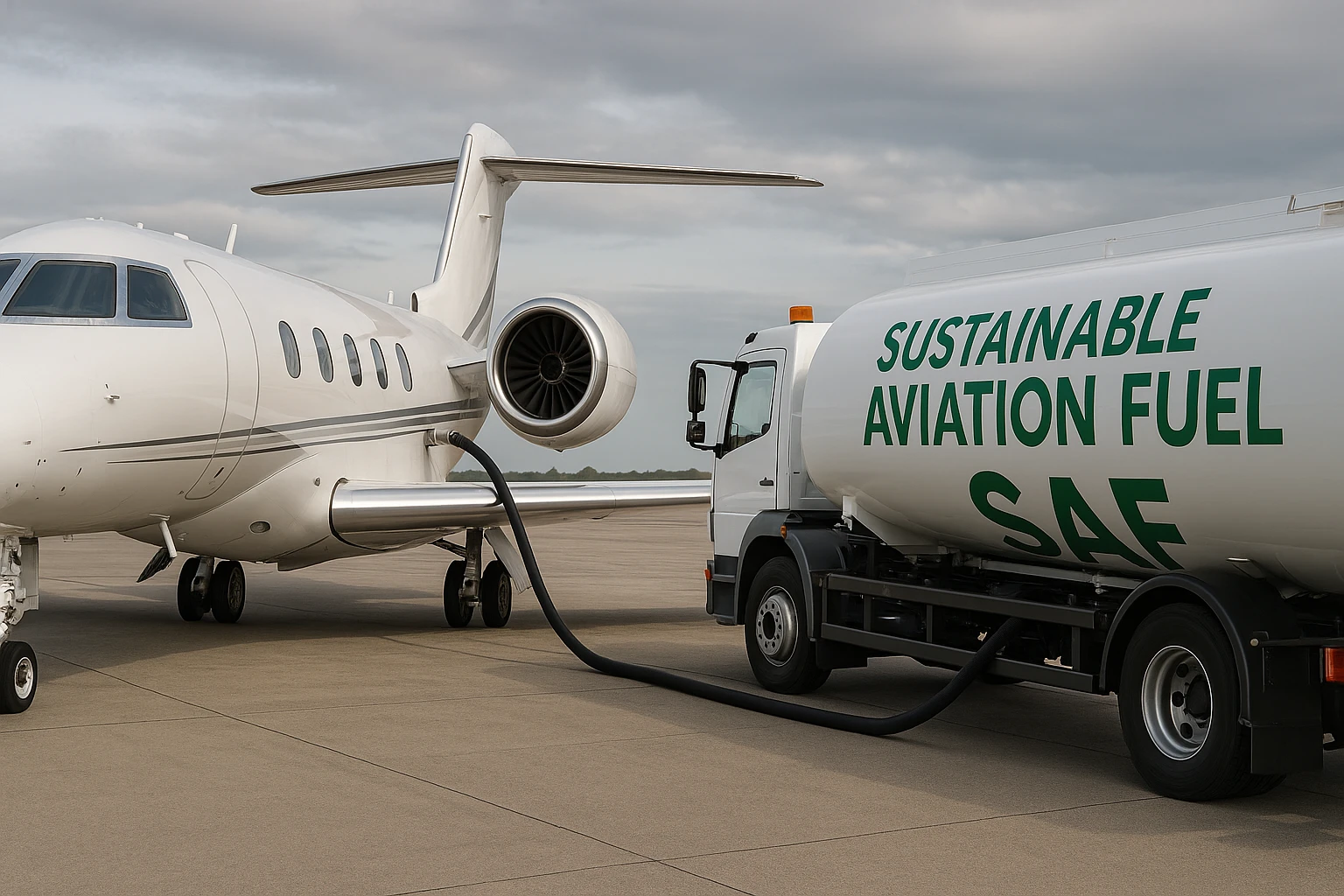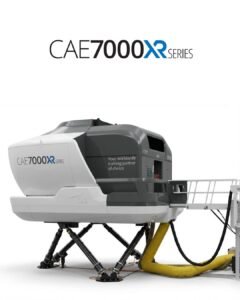In 2025 the European Union will begin enforcing a landmark regulation that could reshape the aviation landscape. The ReFuel EU Aviation law mandates that fuel suppliers at EU airports blend at least 2 % sustainable aviation fuel (SAF) with conventional jet fuel, increasing to 6 % in 2030, 20 % in 2035 and a remarkable 70 % by 2050. These requirements apply to all departures from EU airports, whether the aircraft is heading to another EU nation, the U.S. or a private island in the Caribbean.
SAF is not a single product but an umbrella term for “drop-in” fuels that can substitute for traditional kerosene without engine modifications. It includes synthetic fuels made using renewable electricity and green hydrogen, biofuels derived from plant waste or forestry residues, and recycled oils such as used cooking oil. The rationale is clear: aviation emissions remain hard to abate, and SAF can reduce lifecycle CO₂ by up to 80 %. By steadily increasing the mandated share, the EU hopes to create a guaranteed market that will encourage investment in SAF refineries and drive down costs.
While this is good news for the climate, operators and passengers should anticipate some transitional friction. SAF is currently more expensive than conventional fuel, and the legislation bans “tankering” – the practice of filling aircraft with extra fuel at airports with lower prices to avoid refueling where it is more expensive. That means private jets flying into or out of Europe will no longer be able to overfill in Dubai or Miami to bypass European SAF mandates. As fuel costs make up roughly one-quarter of operating expenses, prices may rise modestly. Additionally, supply constraints could occur; the EU itself acknowledges that production capacity is not yet sufficient to meet even the 2025 requirement.
On the innovation front, aerospace companies are racing to develop hybrid and electric propulsion systems, lighter airframes and quieter engines that further reduce environmental footprints. Axiom Aviation notes that research into SAF from algae, plant waste and cooking oil is accelerating alongside efforts to build hybrid-electric powerplants. Manufacturers are also experimenting with carbon-fiber composites and 3D-printed components to lighten aircraft and increase fuel efficiency.
While SAF use may add cost in the short term, it provides a way for travelers to reduce their carbon footprint without sacrificing flexibility or privacy. For more insights on sustainability in aviation, check out our latest blog posts.







